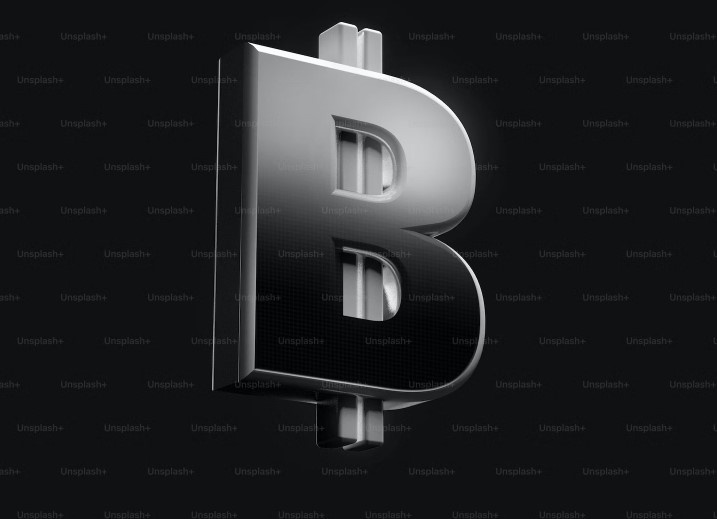Introduction
Welcome to this article where we will dive deep into the future of currency, specifically focusing on the comparison between Bitcoin and conventional fiat money. In recent years, the rise of cryptocurrencies, such as Bitcoin, has sparked intense debates about the future of money and the potential impact it may have on traditional financial systems. Are we witnessing a revolution in the way we transact and store value? In this article, we will explore the evolving landscape of currency and examine the key differences between Bitcoin and conventional fiat money.
The Current State of Currency.
Before we delve into the future, let's examine the present state of currency. Conventional fiat money, backed by governments and central banks, has been the predominant form of currency for centuries. It holds its value based on the trust and faith people have in these institutions. Whether it is the US dollar, euro, yen, or any other world currency, fiat money operates within a centralized system where governments regulate its supply, control its value, and facilitate transactions through financial intermediaries like banks.
Bitcoin: A Brief Overview
Bitcoin, on the other hand, is a decentralized digital currency that operates on a peer-to-peer network known as the blockchain. Introduced in 2009, Bitcoin was the first cryptocurrency, and it has since paved the way for thousands of others. Unlike fiat money, Bitcoin does not rely on a central authority or government for its creation and distribution. Instead, it relies on a complex cryptographic algorithm and a network of computers to validate transactions and maintain the integrity of the blockchain.
The Advantages of Bitcoin
Bitcoin offers several advantages over conventional fiat money, which contribute to its growing popularity and potential as a future currency.
1. Decentralization
One of the key advantages of Bitcoin is its decentralized nature. The absence of a central authority means that transactions can be conducted directly between users without the need for intermediaries. This opens up possibilities for faster and cheaper cross-border transactions, as well as greater financial inclusion for individuals who are unbanked or underbanked.
2. Security and Privacy
Bitcoin transactions offer a level of security and privacy that is not always guaranteed with conventional fiat money. The blockchain technology underlying Bitcoin ensures that transactions are recorded transparently and immutably, reducing the risk of fraud and tampering. Additionally, Bitcoin allows users to maintain pseudonymous identities, providing a certain level of privacy in an increasingly digital world.
3. Limited Supply
Unlike fiat money, which can be printed or digitally created at the discretion of central banks, Bitcoin has a limited supply. The total number of Bitcoins that will ever exist is capped at 21 million. This scarcity gives Bitcoin a unique store of value characteristic and protects it from inflationary pressures that can erode the value of fiat currencies over time.

The Challenges of Bitcoin
While Bitcoin offers several advantages, it also faces a set of challenges that hinder its widespread adoption and acceptance as a mainstream currency.
1. Volatility
Bitcoin's price volatility is a major concern for many individuals and businesses. The value of Bitcoin can fluctuate dramatically within short periods, making it an unpredictable medium of exchange and a risky store of value. This volatility is often attributed to market speculation, regulatory uncertainties, and the relatively small size of the cryptocurrency market compared to traditional financial markets.
2. Scalability
As Bitcoin's popularity grows, so does the demand for its use in everyday transactions. However, the current infrastructure supporting Bitcoin has faced challenges in handling the increasing number of transactions efficiently. Scalability issues, such as network congestion and high transaction fees during peak periods, have raised concerns about Bitcoin's ability to function as a practical medium of exchange on a global scale.
3. Regulatory Hurdles
Governments around the world have been grappling with how to regulate cryptocurrencies like Bitcoin. The decentralized and borderless nature of Bitcoin poses challenges for traditional regulatory frameworks designed for centralized financial systems. The lack of clear and consistent regulations can create uncertainty for businesses and individuals, impeding widespread adoption and integration of Bitcoin into existing financial infrastructures.
The Future of Currency
As we look ahead, it is clear that the future of currency will involve a blend of digital and traditional forms. The rise of cryptocurrencies, led by Bitcoin, has sparked a wave of innovation and experimentation within the financial industry. Central banks and governments are exploring the idea of Central Bank Digital Currencies (CBDCs) to leverage the benefits of blockchain technology while maintaining control over monetary policy.
It is also important to note that while Bitcoin has gained significant attention and popularity, it is just one of thousands of cryptocurrencies in existence. The future may see the emergence of new digital currencies that address some of the challenges faced by Bitcoin, such as scalability and energy consumption.
The Coexistence of Bitcoin and Conventional Fiat Money
Rather than viewing Bitcoin and conventional fiat money as direct competitors, it is more likely that they will coexist and serve different purposes within the future financial ecosystem. Bitcoin and other cryptocurrencies may find their niche as alternative stores of value, while fiat money continues to be the primary medium of exchange for day-to-day transactions.
Conclusion
In conclusion, the future of currency is a fascinating subject that continues to evolve with the advancement of technology and changing financial landscapes. While Bitcoin and conventional fiat money have their respective strengths and weaknesses, it is important to recognize that they can complement each other in creating a more inclusive and efficient financial system. Whether Bitcoin becomes a dominant form of currency or a stepping stone toward the wider adoption of digital currencies, only time will tell. What is certain is that the exploration of the future of currency is an ongoing journey that holds immense potential and possibilities for reshaping the way we transact and store value.


No comments yet